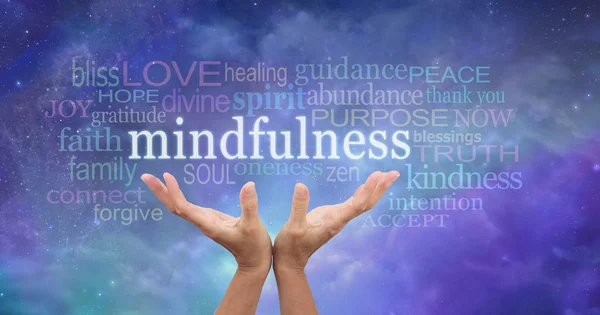
by Teodora | Sep 21, 2025 | Change
“Markov Chains” is a mathematical notion referring to the process of making predictions based solely on the present state of affairs, independent of the history. The only dependency there is is between adjacent elements. In other words, “now” determines the next period and the next period is dependent only on the “now”. This predictability property was explored by Andrey Markov, a Russian mathematician who wrote a paper about it in 1906. He was not the only one to have paid attention though, as I shall point out later.
A famous Markov chain is the so-called “drunkard’s walk”, a random walk, where at each step, the position may change by +1 or −1 with equal probability. One step forward or one step backward depends only on the current position of the drunkard, not on the manner in which he got into it. In real life terms this translates also into the saying “What got you here will not get you there.”
Memorylessness is a notion related to Markov chains and means that the waiting time until a certain event happens does not depend on how much time has elapsed already. In real life terms this can translate into the timing of your next job: it is not a function of how long you’ve been searching or how many rejections you have received. To quote Gary Vee, the marketing guru, you are always one piece of good job away from being successful. Even the most well-known people were unknown until they produces the piece of work that made them known.
Why is this cool to know? Because the neural connections your brain will make next do not depend on the previous ones! Your next state, mental or physical is a function of your current one only, not on what preceded it!
And here comes the Mindfulness! Mindfulness is the technique that captures the memorylessnes of the Markov chain in order to influence the next neural connections of your associations. Now it all falls into place, right!?
The ancient Stoics knew this, the Buddhist knew this and there is a reason for why the modern mindfulness hype is so huge! And you do not have to focus on your breath to be mindful of where and how you are right now, but it helps. Focusing on your breath makes you aware that your are breathing now. And as long as you are breathing, there is going to be a next period. No matter what got you where you are now, your current state is the only factor that counts in relation to your next state. Pay attention to how you are, who you are, when and where you are, now, to influence the probability of your next step being forward rather than backward. And even if it is backward, there is still a next period that is dependent solely on where you are right at that moment.
I don’t know about you, but to me this awareness of how huge “now” is very empowering! You cannot lose because as long as you are breathing, you are in charge of your next step and really, this is all it takes to get you to the one next to it!

by Teodora | Apr 25, 2025 | Change
The power of networks, or the friend-of-a-friend principle, is powerful!
“Six Degrees of Separation” is a game associated with the American actor Kevin Bacon. But the notion was first introduced by the Hungarian writer Frigyes Korinty already in 1929. The two characters of his short story present each other with the challenge of establishing a link to any person on Earth regardless of geography, age or race merely through 5 personal acquaintances.
In 1967, Stanley Milgrim, a research psychologist in Harvard, began a series of experiments by the name of “The Small World Experiments”. The findings of these experiments were that, on average, any person in the USA, could be connected to any other person through 6 friends or links.
In 1994, three college students watched an interview with the actor Kevin Bacon. They set in motion the game “6 Degrees of Separation”. The player had to link any actor in Hollywood to Kevin Bacon through their films in 6 steps or fewer. The students turned the game into a website, and other websites followed. The game became an urban myth, so scientists conducted more experiments to test it. In one experiment, 40 random people from all over the world were chosen to pass on a package to Boston. The results were the same: most packages were delivered to Boston in 6 steps or fewer!
In a world of 7 billion people, everyone knows someone who knows someone and so on until, within 6 steps, someone knows you. Friends and neighbours and relatives on the other side of the planet, everybody counts, and thanks to technology, anybody can be linked to anybody else through random links and hubs in no time at all!
Isn‘t this a beautiful notion, the connectedness of us all?! Everybody you meet or talk to knows somebody who knows somebody, and this is what makes the networks so powerful. You are only 6 handshakes away from any other person on earth! Just a single random link or hub can make a big difference! And everybody can move your package forward!
But here’s the best part, you too are potentially a hub in an open-networks world! So, go out, meet new people and make new friends! Whenever you are of service to others, you are networking and what goes comes around, you stand to gain a great deal by moving other people’s packages forward!

by Teodora | Nov 12, 2023 | Change
The buzz of mindfulness that has been going around for a couple of decades and is becoming louder and louder, I’ve done my fair share of trying am still not getting the expected benefits.
Big companies and schools are starting mindfulness programs because it supposedly increases happiness. Unless we have a generally agreed upon definition of happiness, we cannot really discuss the effects of mindfulness on it.
What is mindfulness?
Mindfully focusing on something at hand, one’s breath would do, is, as we are told by the self-improvement industry, a defence against stress. And stress is supposedly a killer, hence mindfulness is a life-saver. Whether stress is a killer is another question, depends on the definition of stress. If stress is defined as breaking down of molecules, or catabolic chemical reactions, Biology says that all the energy we have in our bodies is derived from catabolic reactions, hence, stress is the source of the energy we have at our disposal, which means that stress is life.
Does mindfulness feel good?
But I am more concerned with the question, does mindfulness actually feel good? To me, it doesn’t.
Mindfulness is about resisting the autopilot and instead being fully “in” the present moment. But what exactly are the benefits of the present moment? When I do that, I feel like I am depriving myself of one of the advantages human cognition has over other species: the ability to hold past and present and future simultaneously. In fact, having a concept of the future is unique to humans, going by what neuroscience has found. Cognitive science confirms that animals do not have a concept of the future like we do. As for the past, judging by how quickly animals recover from a near-death encounter with a predator and within minutes calmly graze grass as if nothing has happened, the past is past for them, gone and non-existent. Animals are in the “now” but I don’t strive after this kind of happiness.
On the face of it, our lives are often much more fulfilling lived outside the present than in it. After all, where are your visions and goals if not in the future? And how do you build on your experiences and learnings if you are not able to hold the past against the future and compare alternative scenarios? If staying “in the moment” actually stresses you, there is nothing against being elsewhere. Your brain is a lovely time- and distance travel-machine!
Mindfulness is often equated to the ability to focus and concentrate. But when I am stuck on a problem, the thing that gets me unstuck is not more focus on it, but just the opposite: distraction. Have you considered why so many “Eureca-moments” happen in a bath tub like with Archimedes or under the shower? Why sniff at automated actions when they are in fact shortcuts to efficiency? Also, focussing on your breath while running late on chores may actually add to the stress, at least in my case. I am not feeling better when I push deadlines or leave things undone, I am feeling worse.
While mindfulness meditations may indeed bring some benefits to depressed patients as research shows, there is no big evidence it brings happiness to ordinary people. And no, it is not going to protect you from your toxic boss! You have to actually deal with your problems.
Nothing against relaxation too, because this seems to be the one certain beneficial aspect of mindfulness meditation, provided this is your preferred relaxation technique. Everybody is different and for some people exercise is more relaxing than mindfulness. If you find that focussing on the tip of your nose actually stresses you by making you question whether you are doing it right, it is not you, it is just not your best approach to relaxation.
Try it, experiment with it, but, like with everything else, don’t overdo it! And if it does not appeal to you, this is OK too.

by Teodora | Jul 18, 2023 | Change
https://www.facebook.com/TeodoraRudolphChangeCoaching/posts/pfbid02mkthj53gA9EQpniNKHBunzyaKx51JCYRpDWYbeFG9FVy3eKSnGLRcju8NyTqCjoSl

by Teodora | Mar 5, 2023 | Change
Schlank und jugendlich aussehen … und beweglich sein und sich wohlfühlen, wer möchte das nicht?
Fühlen Sie sich wohl in Ihrer Haut und Ihrem Körper? Das Gewicht ist keine rein körperliche Sache. Kummerspeck und Schutzpanzer kommen von innen.
Mein Coaching mit Hypnose zum Idealgewicht löst die mentalen Aspekte des Körpergewichts. Der Rest löst sich von allein.
Mit Hypnose lassen sich Essensmuster und Gewohnheitsmuster ändern und die Sucht nach Lebensmitteln lösen. Oft genügen diese Massnahmen, um den Bauchumfang zu verringern. Zusätzlich kann ich auch ein virtuelles Magenband „installieren“, um die Essensmenge zu reduzieren. Alle Massnahmen sind mental und natürlich, denn die Arbeit macht Ihr eigenes Unterbewusstsein.
Spezialangebot zu Beginn des Sommers, um sich im Badeanzug wohlfühlen zu können:
5 Sitzungen zum Packagepreis von SFr. 1300.-
Jetzt buchen auf info@teodorarudolph.com
Disclaimer:
Dies ist ein Angebot, um Ihr Körpergewicht zu regulieren und ist kein Ersatz für eine allfällige ärztliche Behandlung.





Recent Comments